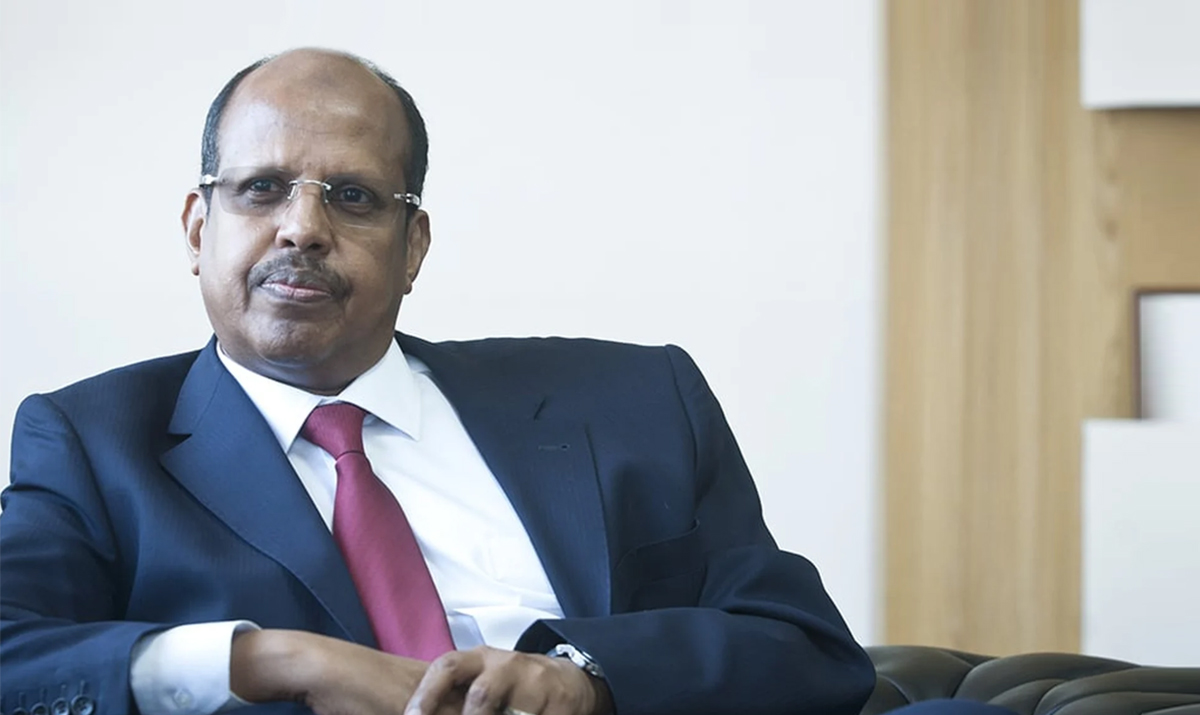
05 Jul Interview with Mahamoud Ali Youssouf, Minister of Foreign Affairs, Djibouti
Business Focus: In 2023, Djibouti experienced impressive economic growth of 6.7%, what were the main factors contributing to Djibouti’s economic success in 2023?
Youssouf: Djibouti’s economic success has been a long process, beginning decades ago with comprehensive economic reforms. Our government enacted crucial laws to enhance domestic entrepreneurship, break away from monopolistic policies, and open the country to foreign investments. Recognizing that infrastructure was essential, we prioritized upgrading it alongside implementing policy reforms over the past two decades.
Under the leadership of His Excellency, President Ismaïl Omar Guellé, we invested heavily in state-of-the-art infrastructure, including specialized ports, an electrified railway line, renewable energy projects, and fiber optic submarine cables. These efforts have been fundamental to our economic growth, evidenced by a 6.7% GDP growth last year and promising prospects for the future.
Understanding our small market size, our leadership aimed to integrate Djibouti into the broader regional market. Our journey is ongoing, and we remain committed to further reforms and attracting investments.
BUSINESS FOCUS: How does the nation maintained strong ties with key security partners amid broader regional challenges?
Youssouf: Djibouti has attracted numerous security partners not just due to its geographical location, but also due to globalization, the digital revolution, global trade, and new technologies. These factors have introduced new players on the international stage and enhanced connectivity, allowing countries to use Djibouti as a transshipment hub for exporting goods through the Bab-el-Mandeb Strait and into larger markets. Understanding these global shifts, Djibouti capitalized on its strategic advantages. Recognizing that trade requires safety and security, especially in our troubled region, we opened our country to international security partners. This approach has allowed us to benefit from their expertise, creating a safer environment for navigation and trade.
Business Focus: What steps is Djibouti taking to address regional conflicts and promote dialogue and peace talks among conflicting parties?
Youssouf: Djibouti’s involvement in regional conflicts is long-standing. For the past two to three decades, we’ve worked with neighboring countries, notably playing a crucial role in Somalia’s peace-building efforts since the early 90s. The region faces numerous challenges in peace, security, and political stability. As IGAD chair, Djibouti, under President Guellé’s leadership, is dedicated to the peaceful resolution of many issues, including state-building in Somalia, normalizing Ethiopia-Somalia relations, and facilitating Sudanese negotiations and humanitarian aid.
BUSINESS FOCUS: What efforts have you undertaken to strengthen ties between Djibouti and its regional partners?
YOUSSOUF: The security and safety of maritime navigation in the Red Sea and the Gulf of Aden through the Strait of Bab-el-Mandeb are crucial for international trade. This strait handles 40% of European trade with Southeast Asia and sees 20,000 merchant vessels annually, contributing to 20-25% of global trade. Djibouti, situated in this vital region, feels the impact of any instability. As a small nation, we avoid aligning with the policies of larger countries, maintaining a policy of neutrality that has been a core principle for decades. This neutrality allows us to contribute positively to peace-building and regional security.
BUSINESS FOCUS: How is the government enhancing Djibouti’s appeal for investors and what emerging local opportunities might attract interest from U.S. and other foreign investors?
YOUSSOUF: Our economic model is guided by Djibouti Vision 2035, which focuses on integration, connectivity, and inclusivity. We serve as a gateway to regional markets like Ethiopia, Somalia, and South Sudan. Attracting investments requires access to these larger markets. We invest heavily in infrastructure, renewable energy, hydrogen production, tourism, logistics, and import activities. Additionally, Djibouti functions as a financial hub with a strong, stable currency and no capital flow controls, making it attractive for investors. Our robust legal system ensures security for investments, allowing investors to move their money freely without risk.
BUSINESS FOCUS: If elected to chair the African Union Commission, how do you anticipate your candidacy will impact the development of the African continent?
YOUSSOUF: The Chair of the African Union Commission involves upholding the objectives of Agenda 2063, implementing structural reforms, and enhancing Africa’s international presence. A top priority will be the continental free trade zone, essential for intra-African trade, integration, and prosperity. Another critical goal is securing a permanent UN Security Council seat with veto rights for Africa, building on our current G20 representation. Additionally, developing internal capacities is vital. Priorities include advancing education through the Pan-African Digital University, strengthening the CDC, and establishing the African Medicines Agency to ensure autonomy in vaccine and medicine production. We need to inspire African youth to see Africa as the continent of the future, reducing dangerous migration that costs lives.
BUSINESS FOCUS: What are your current top priorities as Minister of Foreign Affairs and what vision do you have for Djibouti on the world stage in the next decade?
YOUSSOUF: Bringing justice to the international financial system is not just Djibouti’s demand, but the African continent’s. Currently, decision-making in institutions like the IMF and World Bank lacks African representation, a concern voiced during my speech at the UN General Assembly last September. As Foreign Minister, part of our vision is diversifying the economy beyond reliance on logistics and ports. Renewable energy, tourism, and finance are key sectors in this diversification effort. By focusing on economic diversification and commitment to peace and security, we aim to earn recognition for our contributions to global challenges. We see peace and security as essential for prosperity and development.


